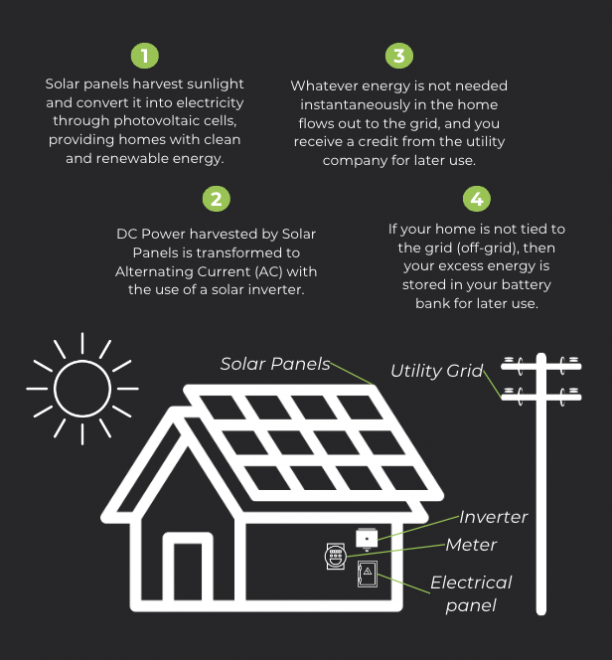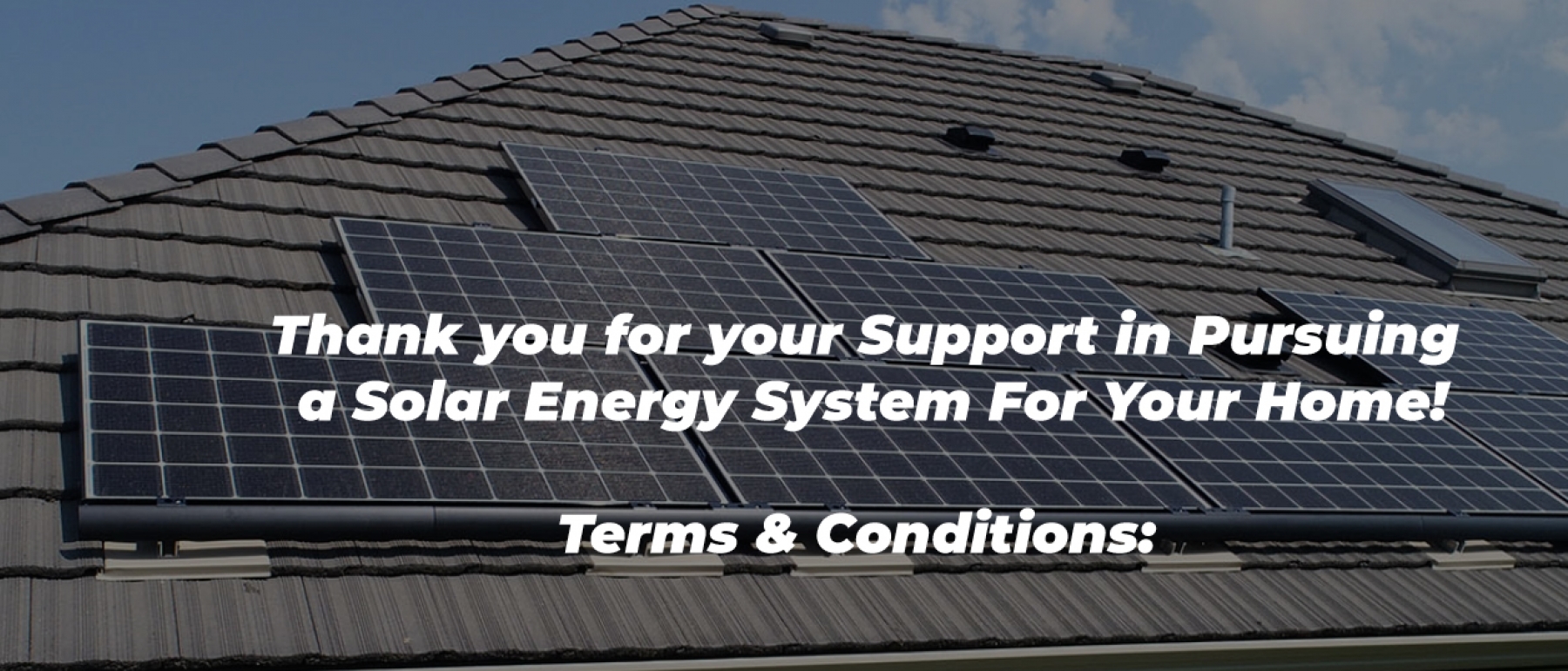How does solar work?
Solar panel systems convert sunlight into electricity, allow the opportunity to store excess energy, and provide financial and environmental advantages through net metering to reduce costs and emissions.
- Photon Absorption: Solar panels contain photovoltaic cells that absorb photons from sunlight, initiating the flow of electricity.
- Electricity Generation: The interaction of photons with the solar panel's cells generates direct current (DC) electricity.
- Conversion to AC: An inverter converts DC into alternating current (AC), which is the standard form of electricity used in homes and businesses.
- Energy Storage: Excess energy can be stored in batteries for use when sunlight is not available, ensuring a constant power supply.
- Net Metering: Surplus electricity generated can be sent back to the grid, often resulting in credits or payments under net metering schemes.
- Environmental Impact: Solar energy reduces dependence on fossil fuels, decreases greenhouse gas emissions, and contributes to a sustainable future.
- Economic Benefits: Decreases electricity bills over time and can increase property value, along with creating jobs in the renewable energy sector.
Solar panels not only convert sunlight into usable energy but also symbolize a shift towards sustainable living. By integrating these systems, homeowners can achieve energy autonomy, lessen their environmental impact, and participate in a greener economy. This transition to solar power reflects a growing commitment to renewable energy and a proactive approach to mitigating climate change, illustrating how individual choices can have a collective positive effect on our planet's future.

Contact NeZero Solar today, and talk to us about solar-powered energy solutions for your home or office and how the process works.
